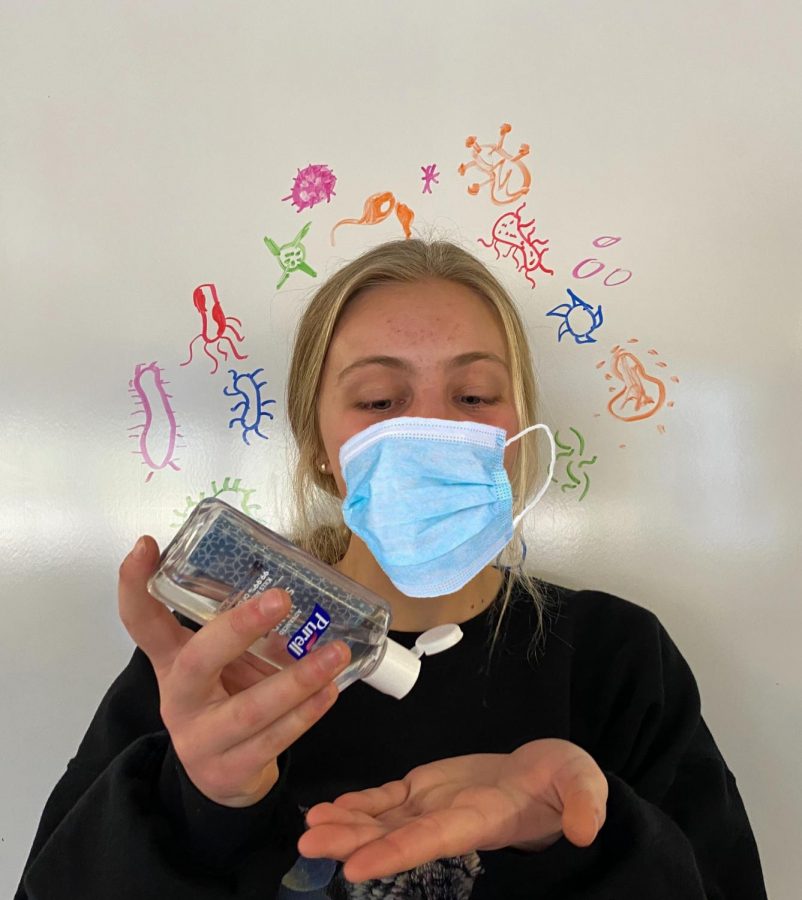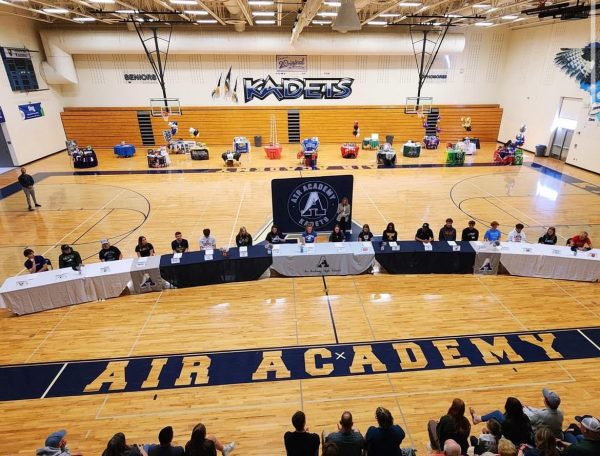Coronavirus: What It Is and How We Can Prevent It At Air Academy
Coronavirus is a novel virus that should be taken seriously. According to CNN’s tally, it has killed more than 3,500 people and infected over 125,000. The majority of cases reside in China but Italy is now seeing a surge in cases along with the United States.
There is no vaccination yet.
According to The Telegraph, coronaviruses are a family of viruses that cause disease in animals. There are seven of them, including the new virus, and they have made the jump to humans; most cause cold-like symptoms.
The virus was first encountered in Wuhan City, Hubei Province, China, according to The New England Journal of Medicine. The first of the infections were linked to a live animal market, but now the virus is spreading from person to person. It can also be spread asymptomatically, from infected surfaces or objects.
Coronavirus has been labeled as a pandemic by the World Health Organization.
According to the World Health Organization, common signs of infection include respiratory symptoms, fever, cough, blushy cheeks and lips, shortness of breath and breathing difficulties. In more severe cases, the infection can cause pneumonia, severe acute respiratory syndrome, kidney failure, and even death.
“I think that it is important, that we as high school students, understand the seriousness of the virus and ways to prevent the spread of it.,” said freshman Maggie Moore.
On March 10th, Italy was put on complete lockdown, because of the virus. Prime Minister Giuseppe Conte announced that he is extending restrictions for the lockdown. “Italy’s total number of deaths is 463. The country has 9,172 cases so far, the most of any European country,” said CNN.
The NBA, NHL, March Madness, MLS, MLB, and more popular sporting events have either been canceled or delayed.
The first two cases of coronavirus in Colorado were announced on Thursday, March 5, 2020. Health officials are testing dozens of people in order to track and try to slow the spread of the virus. There are now currently 72 people who have tested positive for the virus in Colorado. The cases were discovered in Routt County, Eagle County, Pitkin County, Summit County, Gunnison County, Larimer County, Adams County, Weld County, Arapahoe County, Douglas County, Jefferson County, El Paso County, and Pueblo County.
Academy District 20 has taken steps to inform students, faculty, and parents about the current situation. They have helped prevent the spread of COVID-19, making students, staff, and the community their top priority while still making an effort to reduce the amount of disruption that is taking place in the classroom.
“Starting Monday, March 16, Academy District 20 will join El Paso County school districts in closing all school facilities for a period of 14 days. This action is an attempt to slow the spread of infection during the COVID-19 pandemic,” said Academy District 20’s page. That is including the already planned spring break. Teachers will be emailing students and communicating through Schoology about their assignments and learning online.
According to health experts, there is no specific cure for this virus right now, but there are common-sense safety precautions that we as a community can take to prevent getting this harmful virus; such as:
-
- Avoiding close contact with people who are sick
- Eat a healthy diet and live a healthy lifestyle (i.e., do not smoke or vape)
- Don’t drink from each other’s water bottles
- Clean your hands often
- Wash your hands with soap and water for at least 20 seconds, especially after blowing your nose, coughing, or sneezing, or having been in a public place.
- If soap and water are not available, use a hand sanitizer that contains at least 60 percent alcohol.
- To the extent possible, avoid touching high-touch surfaces in public places – elevator buttons, door handles, handrails, toilets flush handles – as well as handshaking with people, etc. Use a tissue or your sleeve to cover your hand or fingers if you must touch something.
- Avoid touching your face, nose, or eyes.
- Clean and disinfect your home to remove germs: practice routine cleaning of frequently touched surfaces
- Avoid crowds, especially in poorly ventilated spaces. Your risk of exposure to respiratory viruses like COVID-19 may increase in crowded, closed-in settings with little air circulation if there are people in the crowd who are sick.
- Also, make sure to have a plan if you do get sick, or people near you get the sickness.
- Determine who can provide you with care if your caregiver gets sick
The virus has the means to continue spreading and a vaccine is far from available so being prepared is essential. As the weather warms up some people feel that like the flu virus, the coronavirus will die off. Stocking up on a week or two of food, water, paper towels, and cleaning supplies is a good precaution to take. It is important to make sure you have medicines and medical supplies (tissues, cleaning alcohol, Tylenol, etc.) to treat fever and other symptoms, as well.
The majority of people will be able to recover from COVID-19 at home. Elderly people and people with preexisting illnesses such as HIV, lung disease, and asthma or others with compromised immunity appear to be at higher risk and may get a more serious disease, and therefore should likely avoid very large crowds to minimize transmission. If you want to stay up to date with information about the virus, visit The Center for Disease Control’s website. Or visit Academy District 20’s website.

Hello, my name is Mikki, and I am a freshmen at Air Academy High School. I am a part of the varsity Cheerleading team at Air Academy. I am a flyer, which...









Lynda Powell • May 1, 2020 at 2:53 pm
Mikki – I enjoyed reading your article; good summary and informative!